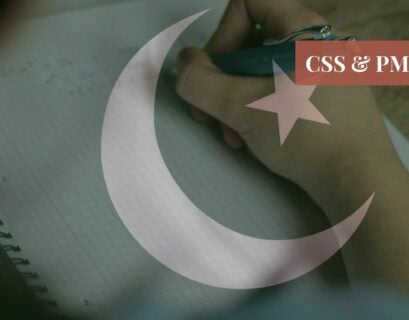What is the OIC?
The Organisation of Islamic Cooperation (OIC) declares itself as “the collective voice of the Muslim world”, with a goal “to safeguard and protect the interests of the Muslim world in the spirit of promoting international peace and harmony among various people of the world.” The OIC Council of Foreign Ministers meets yearly whilst the Islamic Summit – the supreme authority consisting of the Heads of State and governments – meets once every three years.
Headquartered in Jeddah, Saudi Arabia, the OIC was founded in 1969, and today is the second-largest intergovernmental body in the world after the United Nations. Originally named the Organisation of the Islamic Conference, the OIC consists of 57 member states, countries that either have a Muslim majority or a significant portion of Muslims in their population.
In its meetings, diplomats and politicians meet to discuss and formulate policy and formalise collective attitudes of the OIC member countries regarding global affairs. Pakistan is the second-largest member of the OIC. Since the OIC’s inception, Pakistan has taken the lead in organising and sponsoring policy, often using the OIC as a platform to alert the world to the plight of Muslims in Palestine and Indian-Occupied Kashmir.
Pakistan even led the creation of the OIC Contact Group on Occupied Kashmir, an ad-hoc council concerned expressly with policy and discussion on the Kashmir issue. The OIC has thus evidently often become a battleground between Pakistan and India, with India arguing for a place in the OIC – saying that it is home to 11% of the world’s Muslim population – and Pakistan resolutely opposing the inclusion of India.
Pakistan even famously boycotted the 46th Session of the Council of Foreign Ministers in 2019 due to India being invited as a guest of honour by the UAE. The last OIC meeting to be held in Pakistan was an emergency OIC conference of Foreign Ministers in Islamabad just a few months ago in December 2021, called in response to the developing situation in Afghanistan.
The 48th Session
Attended by nearly 800 delegates, the 48th Session of the OIC Council of Foreign Ministers came amid a very tumultuous time in both international and domestic (Pakistani) politics. The Russian invasion of Ukraine has ground to a halt as it began entering its second month, something no one could have expected before February 24th.
The Afghan Taliban government remains largely unrecognized as the people of Afghanistan endure ever-increasing economic hardships. Locally, the Pakistani opposition consisting of the Pakistan People’s Party (PPP) and the coalition of Pakistan Democratic Movement (PDM) has tabled a no-trust motion against the incumbent Pakistan Tehreek-e-Insaf (PTI) government’s Prime Minister Imran Khan.
However, the 48th session of the OIC Council of Foreign Ministers began on a hopeful note, attended for the first time ever by the Chinese Foreign Minister, Wang Yi, as a special guest. The Pakistani PM Imran Khan addressed the diplomats at the start of the session, calling on them to jointly work towards a peaceful resolution to the Russian-Ukraine war and to present a united front to the world.
He bemoaned the fact that other countries and bodies don’t “take the OIC seriously,” as “we are a divided house and those powers know it.” He noted especially the OIC and the world’s inability to reach any sort of conclusion and resolution to the Kashmir, Palestine, and Afghanistan crises. Khan expressed trust in the different member states of the OIC to begin putting aside their differences and working towards greater cooperation.
The OIC Session placed great emphasis on the discussion of the issues around Palestine and Jammu and Kashmir; reiterating the organisation’s decades-old stance of solidarity with the peoples of the two occupied territories and the recognition of the State of Palestine, calling once again for the cessation of unlawful action by Israel and India in these territories.
As Pakistani Foreign Minister Shah Mahmood Qureshi said during the conference; “the ultimate tragedy is not the oppression and cruelty by the bad people but the silence over that by the good people.”
International Climate
The session was hosted in Pakistan at the same time that the Russian war in Ukraine had been dragging on. The war has taken a toll on the global economy, with severe supply shocks already being experienced in oil, of which now-sanctioned Russia was the world’s largest exporter.
Oil prices have skyrocketed, and many Western powers have reached out to the other oil-producing countries of the world to help ease the burden. Many of these oil-producing countries also comprise the OIC, most notably Saudi Arabia. However, these countries have – under agreements of the Organisation of Petroleum Exporting Countries (OPEC) – refused to increase oil production.
This refusal is not good news for the world, as people all over are complaining about price hikes in oil, which no country is safe from right now. However, it has theoretically given the countries of the OIC greater clout and bargaining power; they might agree to increase oil production, given that certain conditions are agreed upon by the world.
The Islamabad Declaration
Pakistan and the OIC called special attention once again to the Indian actions in Kashmir since August 5, 2019. The Islamabad Declaration adopted by the OIC called for India to;
“a) reverse its unilateral and illegal measures instituted since 5th August 2019;
b) cease its oppression and human rights violations against the Kashmiris in IIOJK;
c) halt and reverse attempts to alter the demographic structure and to redraw electoral constituencies in IIOJK; and
d) take concrete and meaningful steps for full implementation of the UN Security Council resolutions on Jammu and Kashmir.”
Moreover, the OIC in the Islamabad Declaration also took note of the recent incident on March 9th involving a stray Indian missile crossing into Pakistani airspace and landing on Pakistani territory in Mian Channu.
In the Declaration, the OIC reiterated its support for Pakistan, lauding it as “an anchor of stability in South Asia,” and highlighting apprehension about any threat of conflict between the two nuclear-armed nations. They also called for a joint probe to be launched to investigate the circumstances of the incident.
Responses
During the two-day meeting, the Chinese Foreign Minister Wang Yi expressed his support for the Muslim world, also speaking about the “$400 billion” China has invested and plans to invest in over “600 projects in the Muslim world” as part of its famed One Road One Belt Initiative. Yi also reiterated China’s support for a peaceful resolution to the Palestinian conflict, and the other policies outlined in the Islamabad Declaration.
In response to the OIC, and especially Wang Yi’s remarks, the Indian government’s Minister of External Affairs Subrahmanyam Jaishankar, advised Yi to “pursue independent policy,” insinuating that China was simply going along with Pakistan and the other OIC members’ policy of condemning aggression in Kashmir.
Many were also quick to call out the hypocrisy of the OIC for failing to take note of the alleged internment camps for Uighur Muslims in Xinjiang, China. The Pakistani government responded to these Indian statements by calling attention to the “blatant and widespread discrimination, intolerance and violence against Muslims in India”, and the continued denial of the right to a referendum to choose their fate, guaranteed to them by numerous UN resolutions.
Conclusion
The 48th Session of the OIC Council of Foreign Ministers came at an extremely important time in the world. Whilst millions of Muslims remain under occupation and oppression in Kashmir, Palestine, and other areas of the world, a new European conflict has begun which threatens to pull the world further under economic duress.
The continued denial of the rights of freedom and liberty to these Muslims lends great importance to the mission of the OIC; “to safeguard and protect the interests of the Muslim world in the spirit of promoting international peace and harmony among various people of the world.”
Whilst the OIC has been seen time and time again as an ineffective body that has little power to do much beyond comment on and discuss international affairs, there is a growing recognition amongst the member countries, Pakistan chief amongst them, that the OIC has the potential to do more for peace, security, and prosperity in the world.
If you want to submit your articles, research papers, and book reviews, please check the Submissions page.
The views and opinions expressed in this article/paper are the author’s own and do not necessarily reflect the editorial position of Paradigm Shift.



















